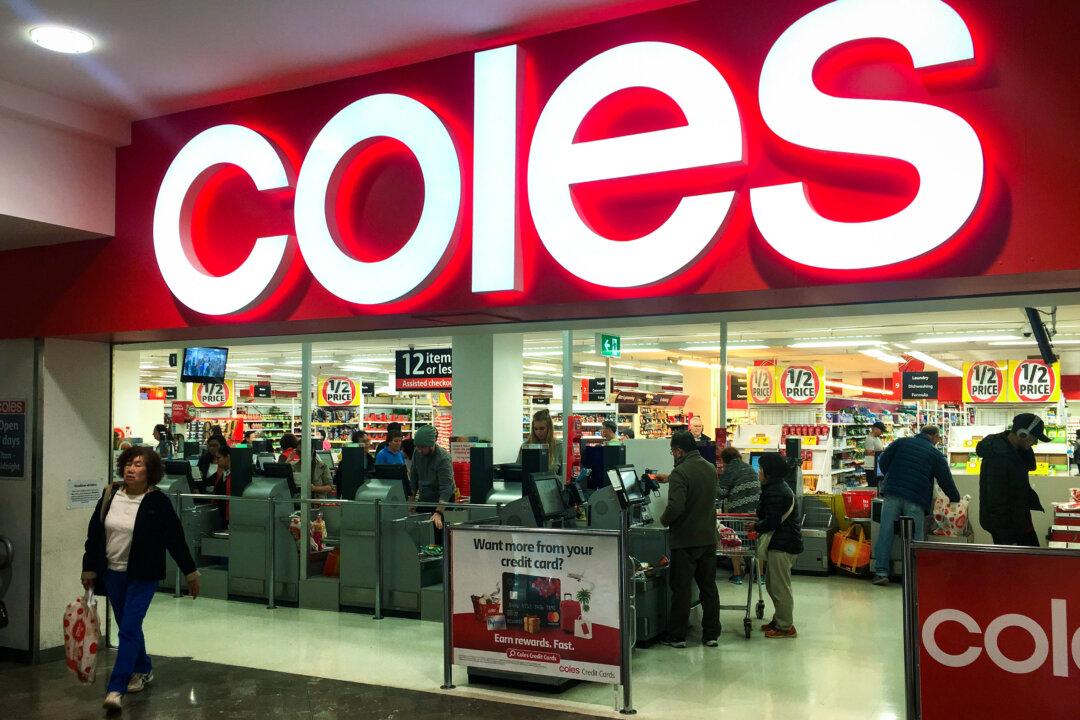The CEO of Coles Group has defended the supermarket chain’s right to earn a profit, arguing that the same cost of living crunch affecting customers is impacting the company’s earnings.
Coles’ sales revenue was up 6.8 percent to $22.2 billion (USD $14.5 billion) during the 27 weeks ending on Dec. 31. However, its profit dropped by 3.6 percent to $594 million compared to the same period last year.





